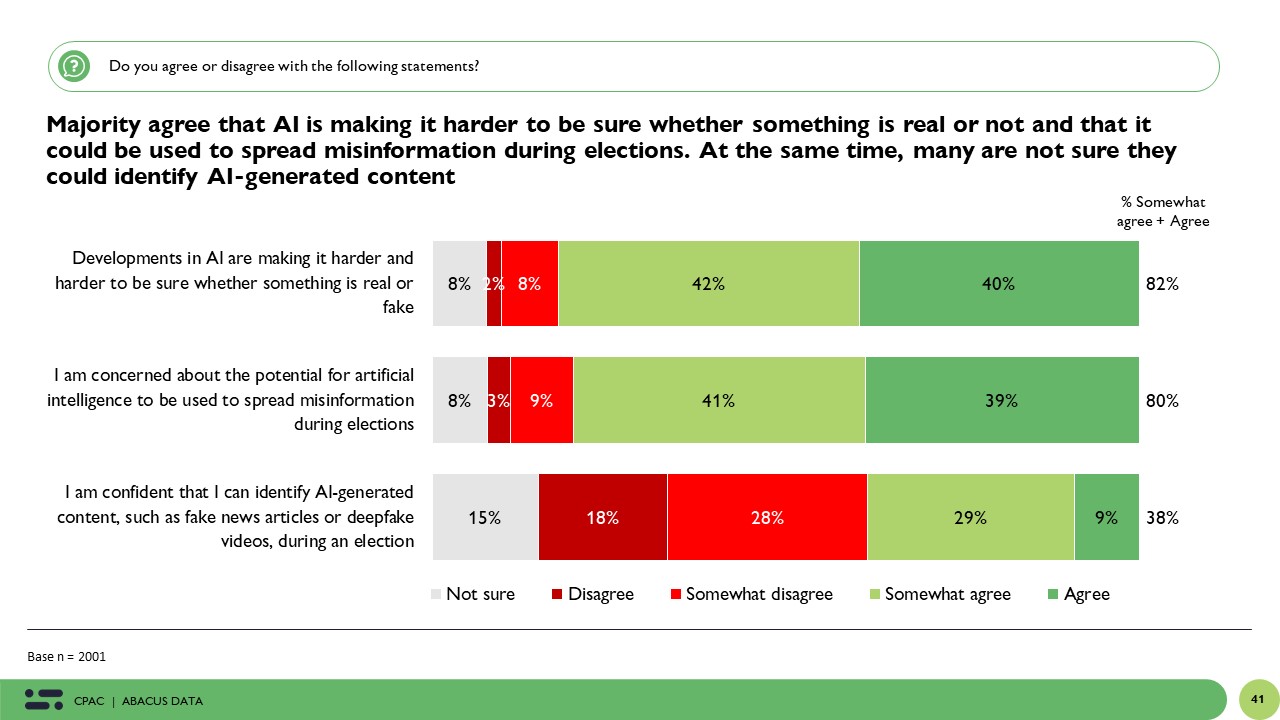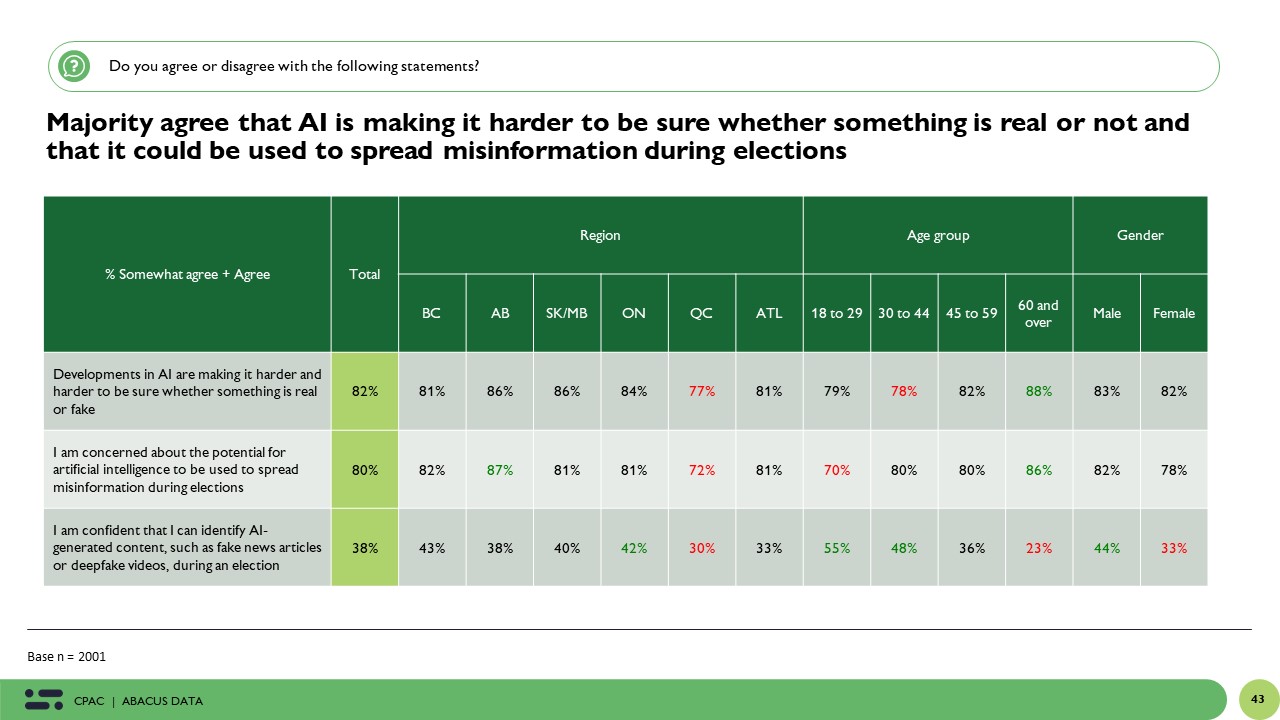By Janet E Silver | PUBLISHED June 24, 2024 6:00amET
More than half of Canadians have either not heard of artificial intelligence or know very little about it, according to an Abacus Data poll commissioned by CPAC in April.
The poll gauged concerns about artificial intelligence (AI) and the impact of AI-generated content. Forty per cent of those surveyed said they did not know much about AI and 12 per cent admitted they had never heard of it. Respondents between 18 to 29, educated Canadians and men were more aware of AI, though 82 per cent of those surveyed said AI made it more difficult to distinguish real from fake.
However, eighty per cent of respondents said they were concerned about the potential misuse of AI to spread mis-and disinformation during an election campaign.
Eighty per cent of respondents said they were concerned about the potential misuse of AI to spread mis-and disinformation during an election campaign.
Sixty-two per cent of those surveyed were either not sure or not confident they could identify AI use for false information in an election.
“I think that signals to us that most potential voters are going to be wondering, is what I'm seeing, not just being filtered or shared, because there's certain motivations behind the source, but is that content even real,“ said David Coletto, Founder, Chair and CEO of Abacus Data. “Is that Justin Trudeau actually saying what that video says he's saying or Pierre Poilievre. … And that's going to create even more doubt and … perhaps (pull) people away from engaging with the political system simply because they're no longer confident that they can make sense of it.”
Though younger Canadians are more confident they can detect the use of generative AI, only 38 per cent of respondents expressed some confidence in being able to detect fake news in an election campaign. Sixty-two per cent of those surveyed were either not sure or not confident they could identify AI use for false information in an election. The next federal election must occur on or before October 20, 2025.
Those concerns about distinguishing real from fake with AI-generated content were similar across the country, with Alberta, Saskatchewan and Manitoba respondents being more concerned. At the same time, Quebeckers were slightly less at 77 per cent.
As previously reported, 84 per cent of Canadians are concerned about the spread of mis-and disinformation which may be impacting our democracy.
Meanwhile on Parliament Hill debate continues on the next steps following the release of the National Security and Intelligence Committee of Parliamentarians (NSICOP) June report (Opens in a new window) on foreign interference with disinformation campaigns impacting the democratic process.
The report alleges that some MPs may have aided foreign governments and accepted funds or benefits for this action. This debate includes questions about trust in the electoral process and the need for additional safeguards.
In May the Federal Communications Commission (FCC) in the U.S. announced all politicians running in the November 2024 election were required to disclose AI use in TV and radio ads to try and counter the spread of mis-and disinformation in their election campaign.
Though amendments to the Canada Elections Act (Opens in a new window) introduced in March address false and misleading statements as an offence, there are no specific references to AI and its potential use in an election campaign, as the FCC has done. Those amendments include measures to further support participation in an election, enhance privacy protections and provide further safeguards against foreign interference.
“I don't think misinformation or disinformation is going away. I think that's just the nature of the ecosystem we now live in. And I think it's always been there. … Now, we can do it subversively and privately on people's devices,” Coletto said. “We can try to combat it and put in place things that might make that (spreading mis-and disinformation) harder to happen. But I think we have to arm electors, arm citizens, with the ability to make sense of it.”
The Abacus Data survey of 2001 Canadian residents aged 18 and over was conducted between April 11 to 14, 2024. The margin of error for a probability sample of this size is plus or minus 2.19 per cent, 19 out of 20.
CPAC will air an exclusive special Detecting Disinformation for Democracy, Thursday June 27th at 7pm ET. See it on CPAC.
This project has been made possible in part by the Government of Canada.






